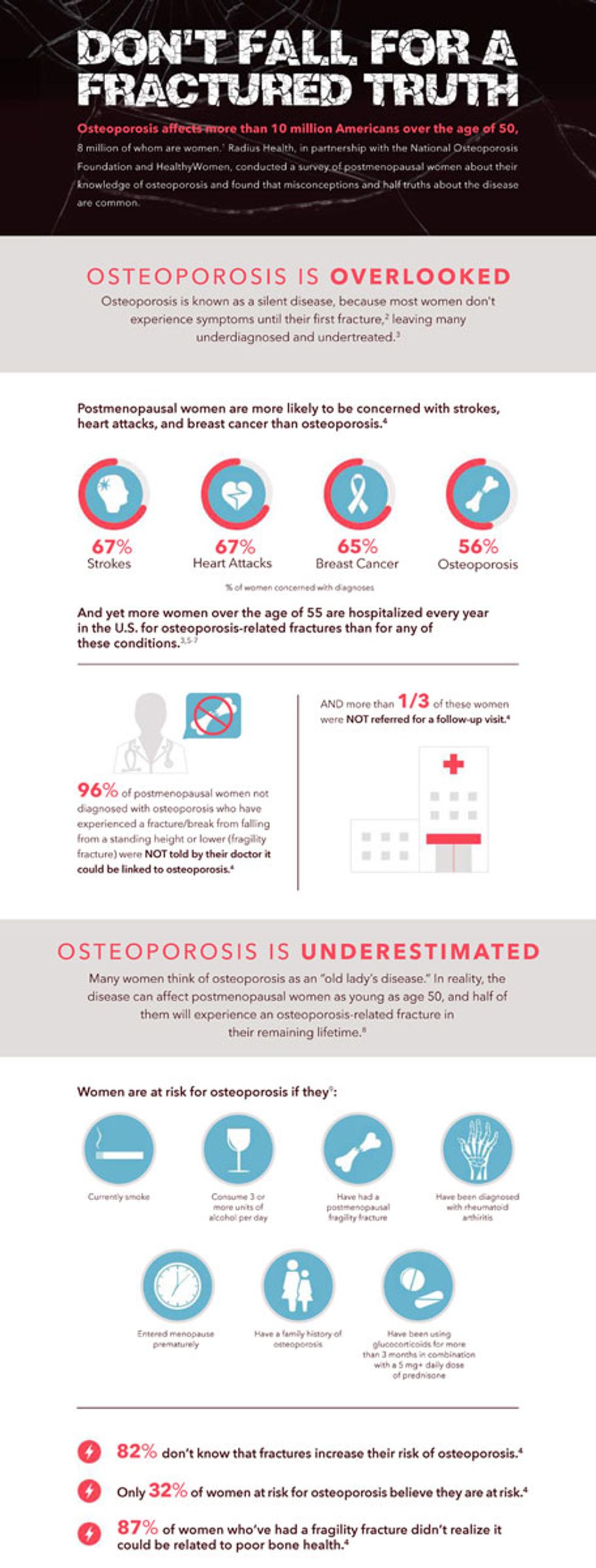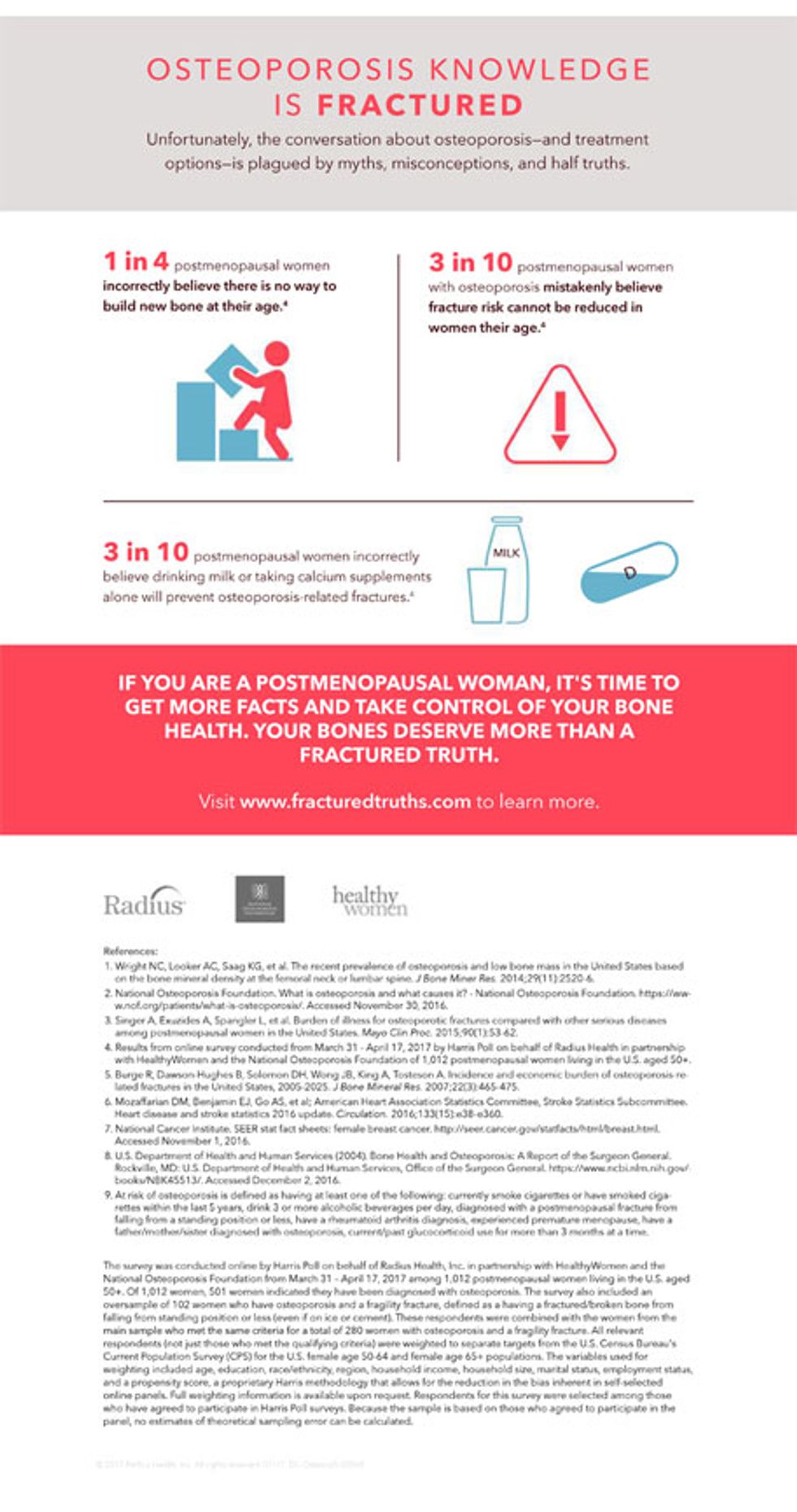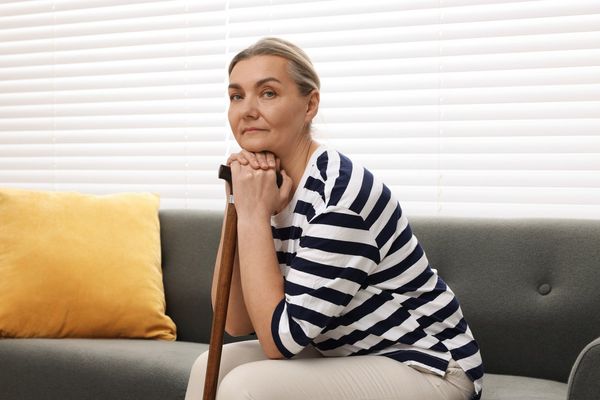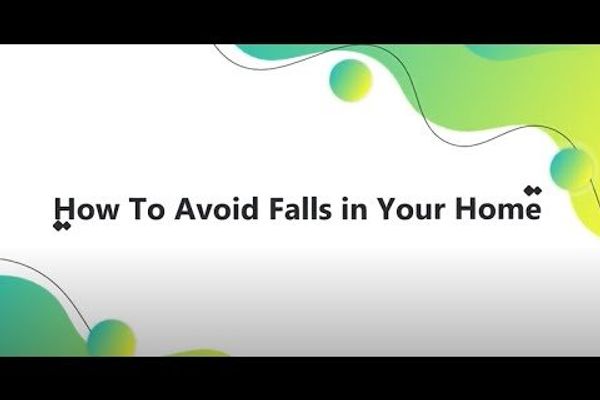Too often, women and their health care providers overlook the connection between a broken bone and osteoporosis. A fracture in a postmenopausal woman—especially one caused by falling from a standing position or less—is an indicator of osteoporosis and should be recognized as such.
Yet, a startling 82 percent of postmenopausal women did not identify such bone fractures as a possible risk factor for osteoporosis, according to results from a new Harris Poll survey conducted on behalf of Radius Health, in partnership with HealthyWomen and the National Osteoporosis Foundation. The survey aimed to measure osteoporosis knowledge of 1,012 postmenopausal women in the United States ages 50 and older, including women diagnosed with osteoporosis and those who aren't.
"One in two women over age 50 will have a fracture caused by osteoporosis in her remaining lifetime, but our survey found that a majority of postmenopausal women are unaware fracture is a risk factor for osteoporosis," said Andrea Singer, MD, FACP, CCD, clinical director and trustee of the National Osteoporosis Foundation. "It is critical that postmenopausal women do not dismiss seemingly insignificant fragility fractures as 'clumsiness,' but instead see them as an important indicator for bone fragility, disease progression and the need for intervention."
If you break a bone, be sure and talk with your health care provider about your risk of another fall and whether you should be tested, and possibly treated, for osteoporosis.
This infographic shows some results from the recent survey.








